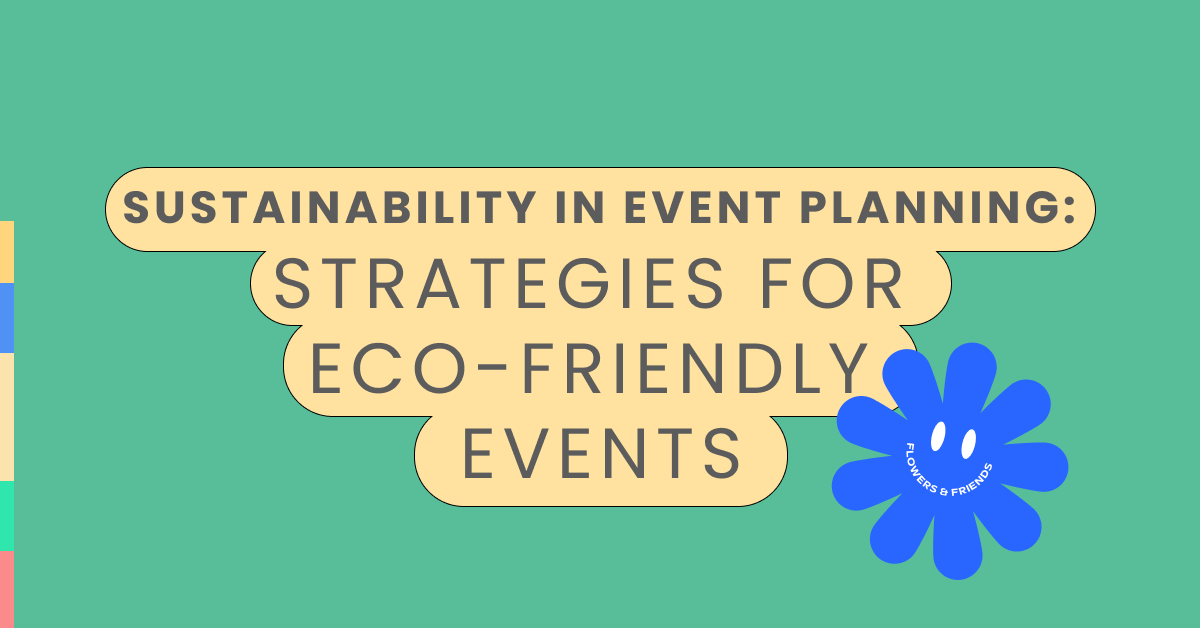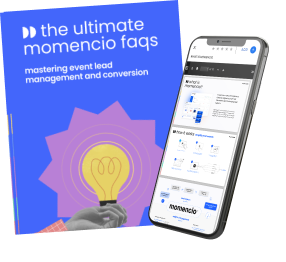Sustainability in event planning is rapidly gaining traction in the meetings sector. Modern event professionals are increasingly environmentally conscious, striving to make a positive impact on our planet. While the events industry offers unparalleled learning, entertainment, and networking opportunities, its environmental footprint cannot be ignored.
Event planners play a pivotal role in addressing the industry’s sustainability challenges. If you’re unsure where to start, you’re in luck. Organizing a green event is easier than it seems.
Equipped with the right tools and knowledge, you can minimize environmental harm while delivering the exceptional event experiences attendees anticipate. Read on to discover how to craft a successful, eco-friendly, and sustainable event.
TL;DR: Sustainability is becoming a core focus in event planning. Learn how to implement eco-friendly practices, from reducing waste to choosing sustainable materials, to minimize your event’s environmental impact while enhancing attendee experiences and brand reputation.
What is a sustainable event?
A sustainable event seeks to minimize its environmental footprint. Green event planners adopt strategies to consciously reduce waste, conserve resources, and champion sustainability.
Examples of sustainable event planning include partnering with venues that utilize renewable energy, providing recycling and composting options, collaborating with local vendors to minimize transportation emissions, optimizing water usage, and selecting eco-friendly event materials.
Key strategies for sustainability in event planning
To implement sustainability in event planning, it’s essential to implement and advocate for green practices. Here are some pivotal strategies event organizers can adopt:
1. Adopt long-term event planning solutions
Start with event planning tools that prioritize sustainability while offering streamlined event management features. These tools should support seamless event technology integration and provide real-time insights into attendee engagement and environmental impact.
2. Set clear sustainability goals
Just as you set performance metrics, establish clear sustainability objectives for your event. Identify which environmental aspects you aim to improve, be it waste reduction, energy conservation, or minimizing transportation emissions.
3. Communicate your green initiatives
Harness the power of event marketing to spotlight your eco-friendly efforts. Craft compelling narratives about your green initiatives and share them through your website, event blog, social media, emails, or videos.
4. Embrace digital solutions
Go paperless. Opt for digital communication tools over printed materials. This not only conserves resources but also offers attendees a more interactive and personalized experience.
5. Virtual events
Virtual events significantly reduce environmental impact. A study from the University of Michigan found that a virtual event produces 66 times fewer greenhouse gas emissions than its physical counterpart. If you’re hosting a virtual event for sustainability reasons, communicate this to your audience.
6. Hybrid events
The second-best strategy for supporting sustainability in event planning is to opt for a hybrid event. 34% of event organizers expect to invest in hybrid events in the next few years. Because of hybrid events, a considerable chunk of your in-person audience may transfer online or to a less-traveled location. Remember that merely adding a virtual audience to your in-person crowd will not increase the sustainability of your event—the greater the number of people, the greater the environmental effect.
However, the realm of hybrid events is large and diverse. Not all hybrid event models are equally long-term. The selection of hybrid venues is important in making events viable. Consider hosting your hybrid experience at a studio or several regional and local hubs.
7. Measure and share the impact
Track and assess the results sustainability in event planning yields to better understand its environmental effect. Gather information on trash reduction, energy use, and carbon emissions. Use this data to develop goals for future events and convey your accomplishments. Share success stories and lessons gained with attendees and stakeholders to inspire others to incorporate sustainability into their events and activities.
By applying five important principles, event organizers can foster an environmentally aware culture and generate positive change. Promoting eco-friendly methods helps the environment while improving the event experience, strengthening brand reputation, and contributing to a more sustainable future for future generations.
Engaging attendees in sustainability efforts
A sustainable event isn’t just about the actions of the organizer; attendee participation plays a significant role in its success. By engaging attendees in your green initiatives, you create a collaborative environment that amplifies the impact of your sustainability efforts. Here are ways to involve attendees:
Eco-friendly registrations and tickets
Offer digital tickets and registration processes to reduce paper waste. Provide options for attendees to opt for eco-friendly event merchandise or even contribute to sustainability causes during registration.
Promote sustainable travel options
Encourage attendees to use public transportation, carpool, or bike to the event. Provide incentives like discounted tickets or special perks for those choosing low-emission travel options.
Interactive sustainability challenges
Create fun, engaging challenges for attendees to participate in during the event, such as a “waste-free attendee” competition or points for using recycling stations. These gamified activities can motivate attendees to adopt eco-friendly habits during the event.
Reusable and sustainable swag
Swap traditional swag bags for reusable or sustainable options, such as tote bags made from recycled materials, bamboo utensils, or plantable seed paper giveaways. Include a message encouraging attendees to use these items beyond the event.
Educational opportunities
Set up interactive booths, panels, or workshops on sustainability topics relevant to your industry. Highlight ways attendees can implement similar practices in their own lives or businesses.
Highlight green partnerships
Partner with eco-conscious vendors, caterers, or local artisans. Showcase these partnerships during the event to inspire attendees to support sustainable businesses.
Sustainability pledges
Ask attendees to make a pledge to support sustainability during and beyond the event. These pledges could include commitments to recycle, reduce single-use plastics, or conserve energy. Share collective pledges as part of your event’s impact report.
Feedback on green initiatives
Post-event, request attendee feedback on the sustainability efforts and ask for suggestions on how to improve. This helps refine your strategy and makes attendees feel like an integral part of your mission.
By involving attendees in your sustainability goals, you don’t just reduce your event’s environmental footprint—you also foster a sense of shared responsibility and create memorable, meaningful experiences that resonate long after the event ends.
Takeaway
Bringing sustainability in event planning is more than following this article’s advice. These suggestions just set the groundwork for your event sustainability program, upon which you may develop a more comprehensive and detailed green strategy.
It is feasible to create a green event without sacrificing the guest experience! All you have to do is begin somewhere. Your event does not have to have zero trash to be considered sustainable. Focus on adopting one long-term plan at a time, and you’ll be well on your way to success in no time.
The correct tools are critical when organizing eco-friendly events and reaching sustainability objectives. momencio emerges as the perfect partner for event planners devoted to sustainability, thanks to its broad feature set and seamless event technology integration. momencio comes with features like lead capture, retrieval, badge scanning, and real-time lead engagement insights.
Contact us and get momencio today to take a step toward a greener yet more efficient event planning and management!














